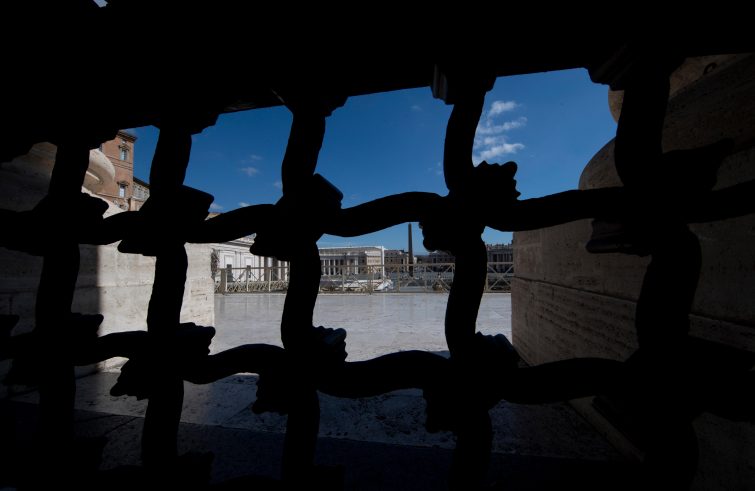
How can we turn the anxiety caused by the presence of the virus that travels all over the world, crossing national borders, into an opportunity? How are we living the invitation to slow down our pace, so that it may keep us and others safe? How are we becoming aware of the great gift of existence received from the Giver of all good, to live it fully, even when we perceive our own fragility?
These days we are all invited to set a distance of one meter from each other.
We have asked ourselves: should we respect a linear meter or a square meter? If it’s a linear metre we risk having only one perspective, if it’s a square metre we will have more chances to broaden our horizons and be more aware of those near us in a concrete way, not to defend ourselves, but to become persons capable of relating to each other.
Caught up in the frenzy of virtual contacts with the entire world, we often ignore those close to us, one meter away. We don’t see anyone, we don’t perceive the presence of the other person. In this time it’s as if we became aware of a healthy space between two people for the first time, regardless of its geometrical shape. It seems like we all landed on earth for the first time a few days ago and we feel unable to position ourselves in a space where everyone acknowledges their own existence and that of the other person.
People are worried; they are dramatically suffering this discomfort, as it is caused by an uncontrollable event: many people are experiencing confusion. We have grown accustomed to predicting and knowing everything in advance, and now we cannot accept that something out of our reach can happen.
While some people appear somewhat disoriented in their movements and look around with suspicion, others minimize to such an extent that they refuse to recognize the danger and, to exorcise subconscious fears, they deny reality, even bypassing the restrictions imposed for everyone’s safety.
What if we decided to identify and embrace reality as it is, which includes an unpleasant experience? What would happen? We would probably relate to ourselves and to others in a different way: we would discover ourselves as persons capable of handling this widespread difficulty with dignity, keeping a proper distance from each other, without crossing the fixed boundaries. At one metre’s distance we can decide to protect our own and other people’s existence. How difficult it is, sometimes, to stop and look at the person standing in front of us, as occurred to Adam and Eve, recognizing in our mutual relationship their right to exist.
These days we don’t know how to structure time, how to fill the gaps, how to live close and constant relationships with real people and not only with virtual ones. It’s a reminder of “Hedgehog’s dilemma” (A. Schopenhauer), in which a group of hedgehogs seek to move close to one another to share heat during cold weather. Yet they realize that they have to avoid hurting each other with their sharp spines. So they try several times to find the right distance that will allow them to warm up. Direct contact with people made of flesh and blood also requires us to find the distance that will protect life, and to do this we need training.
Where is God in all this? Are we looking for Him? How is faith animating us, to live this situation intensely without feeling abandoned by Him? Where have we relegated prayer? How can we enhance this period so that we may become ever more humane people capable of living not only for themselves, donating ourselves to others as Jesus taught us?
In this time of global race through virtual contacts, historical events not determined by programmed algorithms challenge us today: stop, take your life in your hands, listen to the silence and the palpitation of existence, enjoy moments of solitude and listen to God speaking to you, feel the earth under your feet, enjoy your being there and the being of others, discover that you are inhabited by love, ask yourself what meaning your life has, structure time by living it with yourself and with others. Look at the stars, the dawn and the sunset, live the ordinariness of life, smell the scent of your fellow other, of flowers, look and rejoice in the beauty of creation, make your responsible contribution to humanity, to build a society of love based on justice, peace, solidarity, discover the love of God in your life.
By embracing this alternative Lent as a resource, we will discover the pace of time steadily animated by God’s love. Thus everything acquires meaning, even the virus that impels us to rediscover the boundaries of existence inhabited by the Spirit, as we rediscover the innermost beauties of life and of human relationships.










